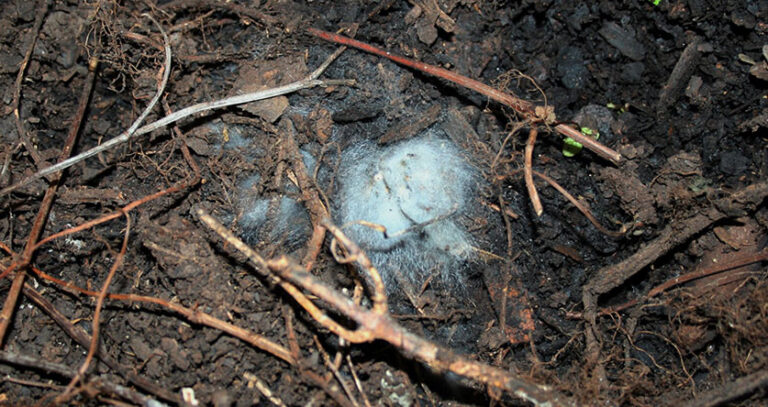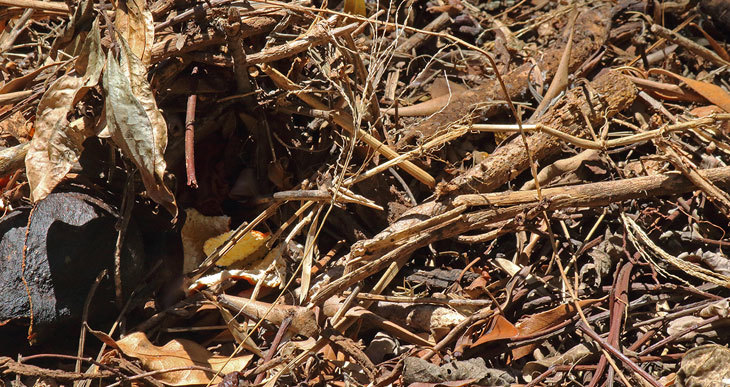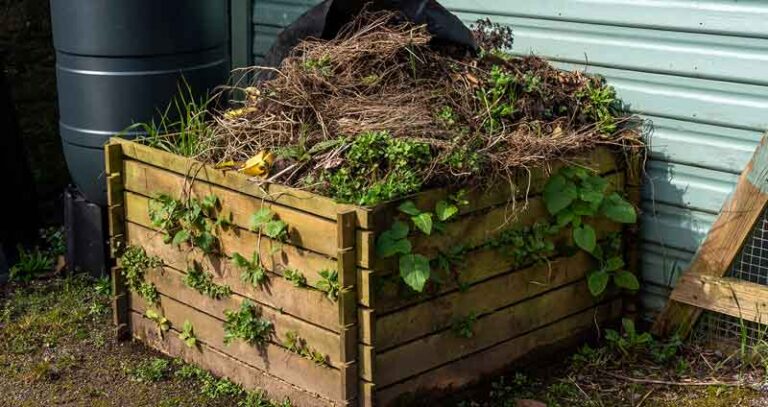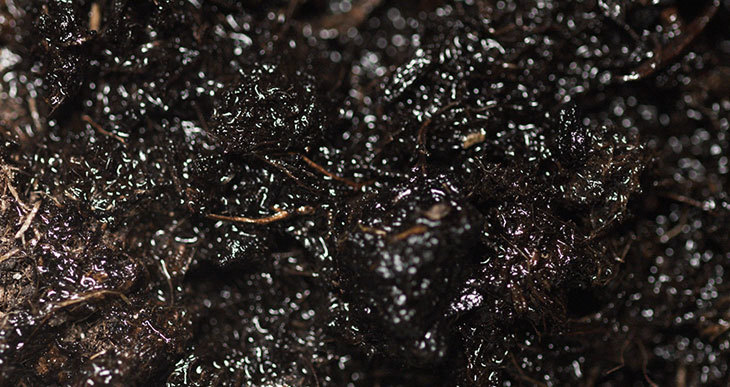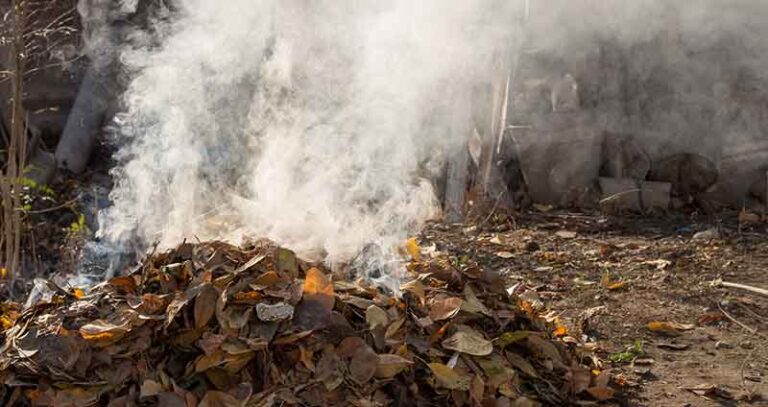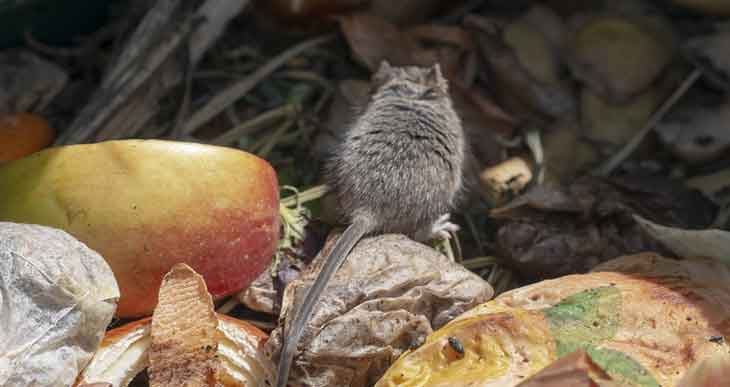How To Get Rid Of The Smell in a Compost Bin (For Good!)
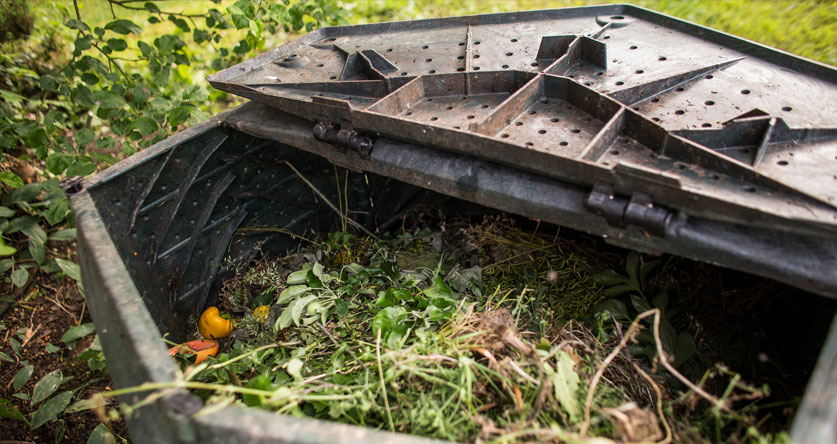
Compost shouldn’t stink.
If yours smells bad, then something’s gone wrong.
You can think of the smell as a warning sign – your compost’s calling for help!
On the upside, for every stench, there’s a solution 🙂
But you must figure out what triggered the odor before you can fix it.
Below I’ll share the most common causes of smelly compost and how to freshen it up.
How To Get Rid Of Smells In a Compost Bin
The first step to getting sweeter-smelling compost is finding out what’s making the stink.
Start by identifying your compost’s specific smell. Suppose you put a clothespin on your nose whenever you get close to your compost. Well, it’s time to remove the pin to get a good sniff.
Once you know what type of smell you’re dealing with, move on to the next section, where I’ll outline the causes of different odors.
Why Does My Compost Smell
Compost will develop an offensive smell because of an imbalance in the compost composition. Most likely, the smell occurs because of insufficient aeration, too much moisture, or an improper ratio of greens vs. browns. The underlying reason for foul-smelling compost is anaerobic decomposition (lacking air).
An unpleasant smell is a warning your compost isn’t happy. The balance of 1 of these 4 composting essentials is likely to be out of whack:
- Water
- Air
- Greens (nitrogen-rich organic waste like fruit and veggie scraps)
- Browns (carbon-rich organic waste such as dried leaves and shredded paper)
These are the top unwelcome compost smells and what’s behind them:
| Compost Smell | What It Means |
| Sulfur (like rotten eggs) | The compost lacks air |
| Rancid or putrid (an off-smell) | There’s meat, eggs, fish, oils, fats, or dairy in the compost |
| Ammonia (like smelly sweat) or sewage | The compost has too many nitrogen-rich greens in the mix |
| Musty | The compost is too wet. If you don’t help it out quickly, the musty smell can develop into the stench of rotten eggs |
Is Compost Supposed To Smell?
Composed is not supposed to have an unpleasant smell. On the contrary, regular compost has an agreeable earth-like smell similar to the dirt from a forest floor.
The only time compost should smell foul is when it’s got manure in the recipe. And the stink should be temporary while the manure decomposes. I throw a thick layer of leaves, straw, or shredded paper over my manure compost to tone down the smell.
All other types of compost shouldn’t stink up the place.
Compost that breaks down correctly smells earthy without a whiff of anything stomach-turning.
How To Make Compost Less Smelly
Now that you’ve identified what’s causing your smelly compost. Next up, get the smell under control!
Remember, these are the reasons for every stinky problem:
- The compost lacks airflow
- Your compost includes rotting animal products
- You have added too many wet, nitrogen-rich materials
- The compost contains too much moisture
And here’s a summary of problems and solutions:
| Your Problem | The Fix |
| Your compost lacks air (rotten egg smell) Two probable reasons: #1: It’s too wet#2: It’s become compacted | Compost that’s too wet is such a common problem that I’ve given it its own section later in this article Add bulky wastes like twigs, small branches, and torn-up cardboard egg cartons to fix compacted compost. These wastes improve airflow. Then turn the compost |
| Your compost contains fats, oils, and animal-based food scraps (putrid, rancid smell) | Keep meat, fish, eggs, dairy, fats, and oils out of your compost unless you have a properly maintained hot-composting system |
| Your compost has too much nitrogen-rich green waste (ammonia or sewage smell) | Mix more carbon-rich brown waste into your compost (like dried leaves, wood shavings, straw, and shredded paper) |
| Your compost is too wet (musty smell) | I’ll get to this in a moment |
How To Keep Compost From Smelling For Good
Prevention is always better than cure, right? So, for your compost and your nose’s well-being, stop your compost from stinking in the first place by keeping all four composting essentials in balance.
Here’s how:
- Add more browns than greens – about 1/3 greens to 2/3 browns.
- Keep the water level at 40 to 60% – nearly as moist as a wrung-out sponge.
- Turn your compost regularly to bring in air – every week or so should do it.
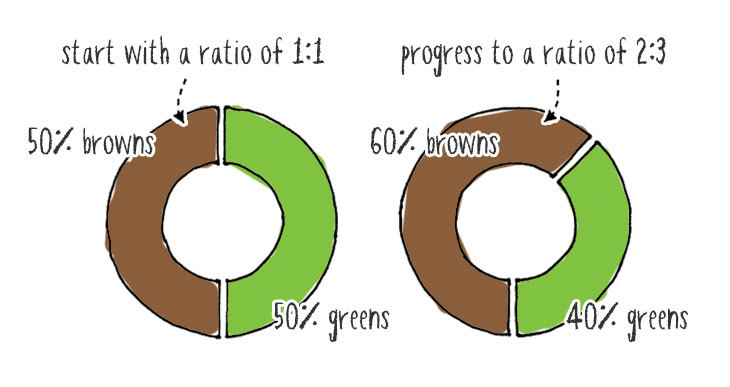
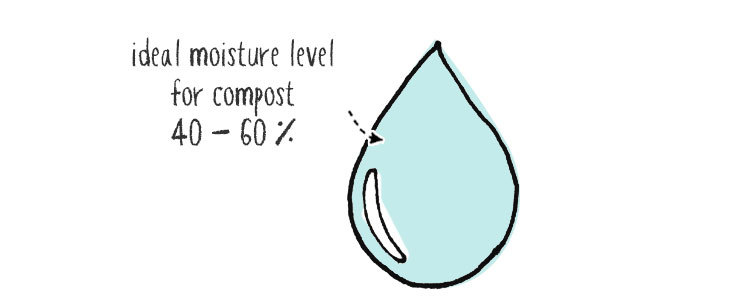
Using a compost moisture meter like this one will help control the wetness of your compost pile so you can keep moisture levels in check. (Amazon)
My Compost Is Too Wet And Smelly
Wet, smelly compost lacks sufficient airflow. The mixture of organic materials needs structure to create air gaps, improving ventilation.
So, we now know mustiness is the first warning that your compost is too wet. And the musty smell will turn to rotten eggs if the pile doesn’t get speedy attention.
The fix for soggy compost is to mix in absorbent browns like sawdust or shredded paper. Then turn the compost.
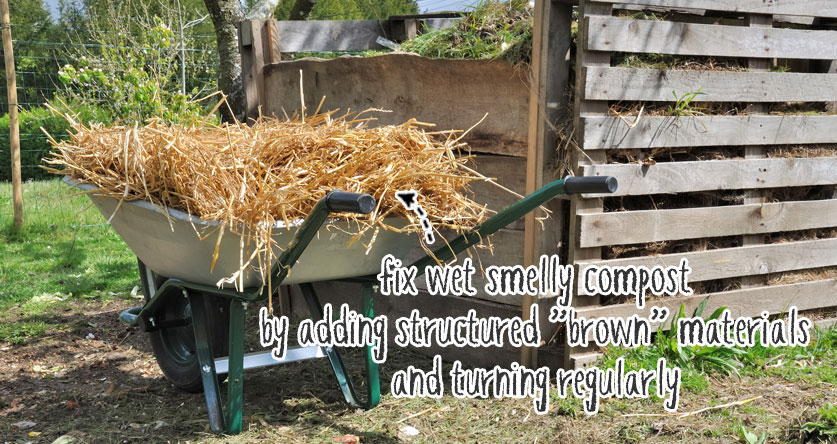
Suppose it’s rain that’s soaking your compost. In this case, cover it with a tarp. (Amazon)
And if it’s too many fruit and veg scraps to blame, add a few handfuls of browns after giving your compost a generous helping of greens.
Compost Smells Like Sewage
Compost that smells like sewage lacks air-flow. This anaerobic state (no oxygen) causes a different type of microbes to take over the decomposition process. This is also known as putrefaction.
As you can imagine this produces pretty foul smelling compost!
You can counteract this problem by encouraging more air circulation. The best way to achieve this is using bulky, carbon materials like broken twigs or dried leaves.
Wood chippings are perhaps one of the best ingredients for maintaining air gaps throughout a compost pile. They add an excellent source of carbon, and because they break down slowly, they will always provide structure to a compost pile with pockets of air between the other ingredients.
That’s why a shredder like this is such a great composting tool! (Amazon)
My Compost Is Too Hot And Smelly
The most likely reason your compost is hot and smelly is that it has manure in it!
As the manure breaks down, the stench will vanish.
Watch that your compost doesn’t get too hot. Temperatures higher than 160°F can kill composting microorganisms and bring decomposition to a standstill.
It’s also possible that you have too many greens in your compost. For example, this often happens when composting grass cuttings. In the initial stages of decomposition, they heat up quickly, then compact together and force out the air. This leads to anaerobic conditions that produce foul odors.
Smelly Compost Advice
You can keep your organic wastes smelling inoffensive as they become a soil supplement by maintaining a balance of air, water, browns, and greens.
If the balance goes out, don’t avoid your compost or put a clothespin on your nose! Give it what it needs, and it will smell fresh and earthy again.


